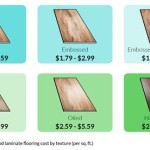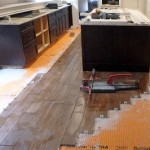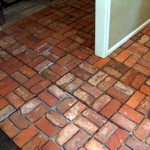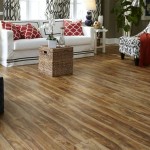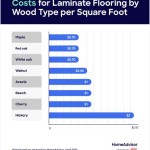Laminate Flooring vs. Engineered Wood: Distinguishing Essential Features for Informed Decision-Making
In the realm of flooring options, laminate and engineered wood emerge as popular choices. Understanding the nuances between these two flooring types is crucial for making an informed decision that aligns with your aesthetic preferences, lifestyle, and budget. This article aims to provide a comprehensive comparison of laminate flooring and engineered wood, highlighting their key features to guide your flooring selection journey.
Construction and Composition
Laminate flooring is constructed from multiple layers, including a base layer, a core layer made of high-density fiberboard (HDF), a decorative layer with a high-resolution image of wood or other patterns, and a wear layer that protects the design from wear and tear. Engineered wood, on the other hand, is made from several layers of real wood, with a top layer of hardwood veneer, a core layer of plywood or HDF, and a backing layer for added stability.
Appearance and Texture
Laminate flooring offers a wide range of styles and finishes, including realistic wood grain patterns, stone looks, and even abstract designs. However, its surface is smooth and uniform, lacking the natural grain patterns and textures of real wood. Engineered wood, with its top layer of real wood, boasts a genuine wood look and feel, showcasing natural variations in grain, knots, and other imperfections.
Water Resistance and Durability
Laminate flooring is generally water-resistant, meaning it can withstand occasional spills or moisture without significant damage. However, it is not waterproof and prolonged exposure to moisture can lead to swelling or warping. Engineered wood, on the other hand, has better water resistance due to its core layer of plywood or HDF. However, it is not fully waterproof and requires immediate cleaning of spills to prevent potential moisture absorption.
Installation and Maintenance
Laminate flooring is relatively easy to install, utilizing a click-lock system that allows planks to be snapped together without the need for nails or glue. It requires minimal maintenance, such as sweeping, mopping, or vacuuming. Engineered wood, while still requiring professional installation, is more involved due to the need for nailing or gluing the planks to the subfloor. Maintenance involves regular sweeping, mopping, and occasional refinishing to maintain its appearance over time.
Cost and Value
Laminate flooring is typically more affordable than engineered wood, making it an attractive option for budget-conscious homeowners. While its lifespan is shorter than engineered wood, it can still provide several years of use before needing replacement. Engineered wood, with its durability and longevity, holds its value better over time but comes with a higher upfront cost.

Engineered Flooring Vs Laminate Everything You Need To Know Forbes Home

Engineered Wood Flooring Vs Laminate Albany Woodworks

Engineered Hardwood Vs Laminate

Engineered Hardwood Vs Laminate

Engineered Wood Vs Laminate Flooring What S The Difference Greyspace

Hardwood Vs Laminate Engineered Floors What S The Difference Clean My Space

Solid Vs Engineered Laminate What S The Difference American Heritage Hardwood Flooring

Laminate Engineered Wood Real Flooring What S The Difference

Choosing Between Laminate And Engineered Wood Flooring Jg

Laminate Flooring Vs Engineered Hardwood Lifecore
Related Posts

